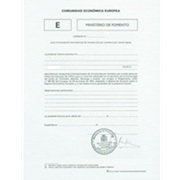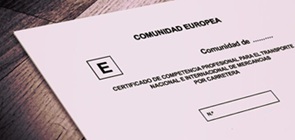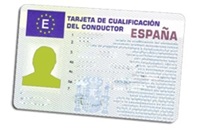Comprehensive Guide to Starting a Transport Company in Spain
 Spain, with its strategic location in southern Europe, modern infrastructure, and robust logistics network, offers excellent opportunities for entrepreneurs in the transport sector. However, starting a transport company in Spain requires compliance with national and EU regulations, careful planning, and financial preparation. This guide outlines the key steps to successfully launch a transport business in Spain.
Spain, with its strategic location in southern Europe, modern infrastructure, and robust logistics network, offers excellent opportunities for entrepreneurs in the transport sector. However, starting a transport company in Spain requires compliance with national and EU regulations, careful planning, and financial preparation. This guide outlines the key steps to successfully launch a transport business in Spain.
Business Registration: Choosing a Legal Structure
Selecting the right legal structure determines your company’s tax obligations, liability, and operational flexibility. Common options in Spain include:
- Sole Proprietorship (Empresario Individual):
- Simple setup but unlimited personal liability. Empresario Individual
- Limited Liability Company (Sociedad de Responsabilidad Limitada or SL):
- Popular for small to medium-sized businesses, requiring a minimum share capital of €3,000. Sociedad de responsabilidad limitada (España)
- Public Limited Company (Sociedad Anónima or SA)
- Ideal for large businesses, requiring a minimum share capital of €60,000. Sociedad anónima S.A.
Business Registration Process
- Name Registration:
-
 Verify the availability of your company name and register it with the Central Mercantile Register (Registro Mercantil Central). Registro Mercantil Central
Verify the availability of your company name and register it with the Central Mercantile Register (Registro Mercantil Central). Registro Mercantil Central
- Obtain a Tax Identification Number (NIF):
-
 Register with the Spanish Tax Agency (Agencia Tributaria) to obtain your company’s NIF for tax purposes. Agencia Tributaria: Inicio
Register with the Spanish Tax Agency (Agencia Tributaria) to obtain your company’s NIF for tax purposes. Agencia Tributaria: Inicio
- Social Security Registration:
-
 Register yourself and any employees with the Spanish Social Security System (Seguridad Social). Seguridad Social: Empresarios
Register yourself and any employees with the Spanish Social Security System (Seguridad Social). Seguridad Social: Empresarios
- Local Registration:
- Register your business with the local municipality for trade licenses and zoning compliance.
Licensing and Permits: Transport Licenses
 Operating a transport business in Spain requires specific permits based on the type and scope of operations:
Operating a transport business in Spain requires specific permits based on the type and scope of operations:
- National Transport License:
- For operations within Spain.
- EU Community License:
- Required for international transport within the EU. Licencias Comunitarias de transporte de mercancías por carretera
Licensing Requirements

- Certificate of Professional Competence (CPC):
- The transport manager must hold a CPC, demonstrating knowledge of transport regulations, safety, and operations. Certificate of Professional Competence for Transport Spain example
- Financial Capacity:
- Provide proof of financial stability: €9,000 for the first vehicle and €5,000 for each additional vehicle.
- Good Repute:
- Key personnel must have a clean criminal record and no history of financial misconduct.
Specialized Permits
- ADR Certification:
- Required for transporting hazardous goods under EU regulations. Qué es el carnet ADR
- Oversized Vehicle Permits:
- For transporting heavy or oversized cargo.
Vehicle Registration and Compliance
- Vehicle Registration
-
 All commercial vehicles must be registered with the Directorate-General for Traffic (Dirección General de Tráfico or DGT). Requirements include: Proof of vehicle ownership or leasing agreements. Insurance documentation. Technical inspection (ITV) certificate. Dirección General de Tráfico
All commercial vehicles must be registered with the Directorate-General for Traffic (Dirección General de Tráfico or DGT). Requirements include: Proof of vehicle ownership or leasing agreements. Insurance documentation. Technical inspection (ITV) certificate. Dirección General de Tráfico
- Technical Inspections
-
 Vehicles must undergo periodic inspections at authorized ITV centers to ensure roadworthiness and compliance with safety and emissions standards. ITV España - Todo sobre la Inspección Técnica de Vehículos
Vehicles must undergo periodic inspections at authorized ITV centers to ensure roadworthiness and compliance with safety and emissions standards. ITV España - Todo sobre la Inspección Técnica de Vehículos
- Emissions Standards
- Spain adheres to EU environmental regulations, requiring vehicles to meet Euro 6 emission standards. Some cities also enforce low-emission zones restricting older vehicles.
Insurance Requirements
- Mandatory Insurance
- Liability Insurance: Covers damages caused to third parties. Vehicle Insurance: Protects against accidents or damages involving company vehicles. Cargo Insurance: Covers goods in transit against theft or damage.
- Optional Insurance
- Business Liability Insurance: Safeguards against operational risks. Employer Liability Insurance: Required if you hire employees.
Employment and Labor Regulations
- Hiring Drivers
-
 Drivers must possess a valid Category C or CE license for heavy vehicles. Completion of Driver Certificate of Professional Competence (CPC) training is mandatory. Certificado de Aptitud Profesional de los conductores (CAP)
Drivers must possess a valid Category C or CE license for heavy vehicles. Completion of Driver Certificate of Professional Competence (CPC) training is mandatory. Certificado de Aptitud Profesional de los conductores (CAP)
- Labor Compliance
- Register employees with the Spanish Social Security System (Seguridad Social) for pensions, healthcare, and unemployment benefits. Comply with labor laws governing minimum wages, working hours, and contracts. Afiliación de trabajadores
- Driving Hours and Rest Periods
- Adhere to EU Regulation (EC) No 561/2006, which sets limits on driving hours and mandates rest periods. Equip vehicles with tachographs to monitor and record compliance. Tiempos de conducción y periodos de descanso en el sector del transporte por carretera
Taxation and Financial Obligations
- Corporate Taxation
- Corporate tax in Spain is 25%, with reduced rates for small businesses. VAT (Value Added Tax) applies at 21%, with reduced rates for specific goods and services.
- Road Taxes and Tolls
- Heavy Goods Vehicles (HGVs) are subject to tolls on highways and certain routes. Payment can be managed through toll cards or electronic systems like VIA-T.
Environmental and Sustainability Obligations
- Low-Emission Zones (LEZs)
- Major cities such as Madrid and Barcelona enforce low-emission zones that restrict older, high-polluting vehicles. Ensure compliance with emissions standards or apply for temporary exemptions. Las zonas de bajas emisiones en España
- Green Initiatives
- The Spanish government offers incentives for adopting sustainable practices, such as using electric or hybrid vehicles. Tax benefits and subsidies are available for companies investing in eco-friendly technologies.
Operational Standards and Safety
- Cargo Safety
- Adhere to EU regulations for securing cargo, including proper use of straps, nets, and locks. Ensure vehicles are equipped with safety gear like reflective signs and fire extinguishers.
- Workplace Safety
- Conduct regular training on safe loading and unloading practices. Implement safety protocols for handling hazardous or oversized cargo.
- Documentation
- Maintain records of vehicle inspections, driver hours, and operational activities to ensure regulatory compliance.
Inspections and Penalties
- Regulatory Inspections
- Spanish authorities conduct periodic inspections to verify compliance with transport regulations and safety standards.
- Penalties for Non-Compliance
- Violations such as overloading, unsafe vehicles, or breaches of driving hours can result in fines, license suspensions, or legal action.
Conclusion
Starting a transport company in Spain provides access to a vibrant market with strong growth potential. However, navigating the legal, financial, and operational requirements is essential for success. By adhering to regulations, leveraging modern tools, and embracing sustainable practices, your transport business can thrive in Spain’s dynamic logistics landscape.
eXus Dev